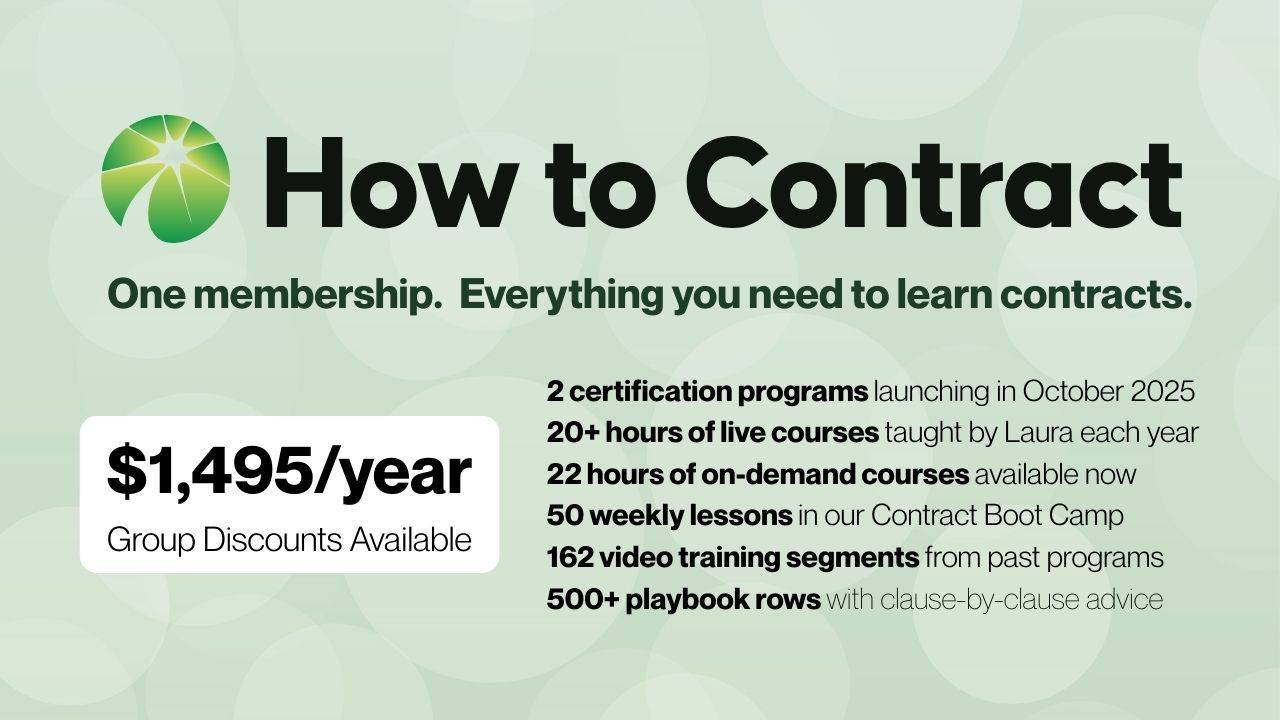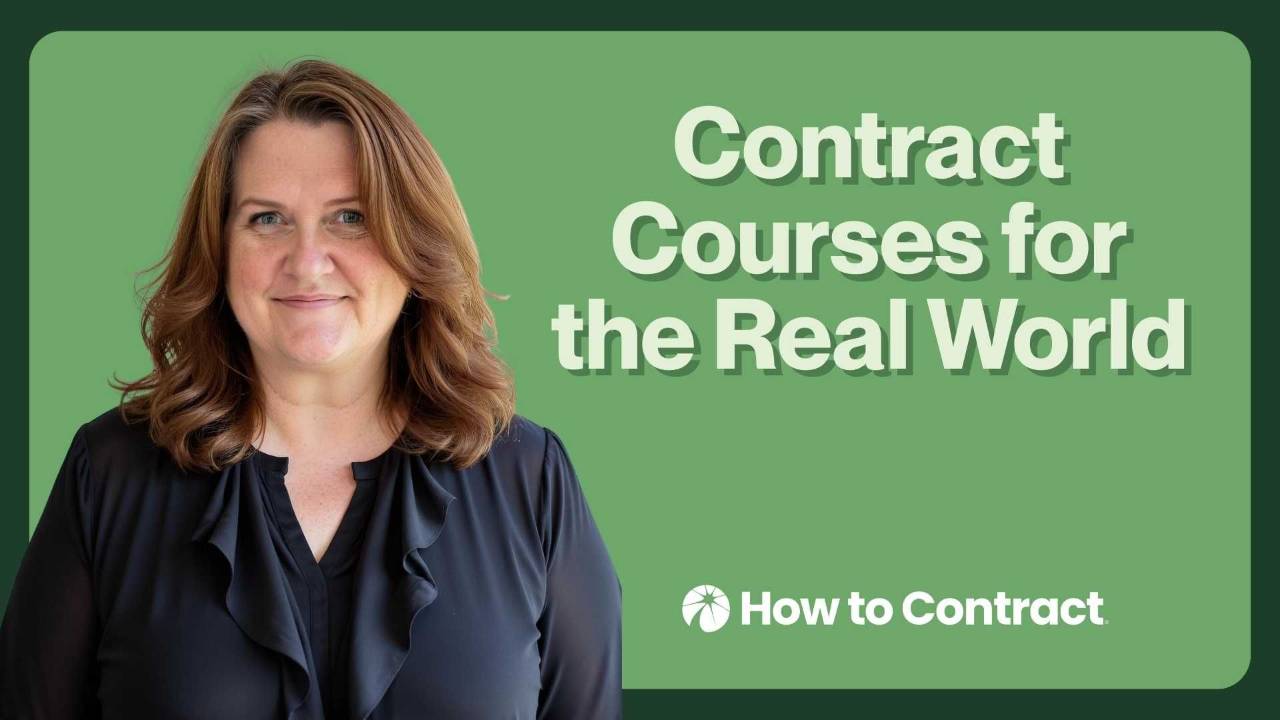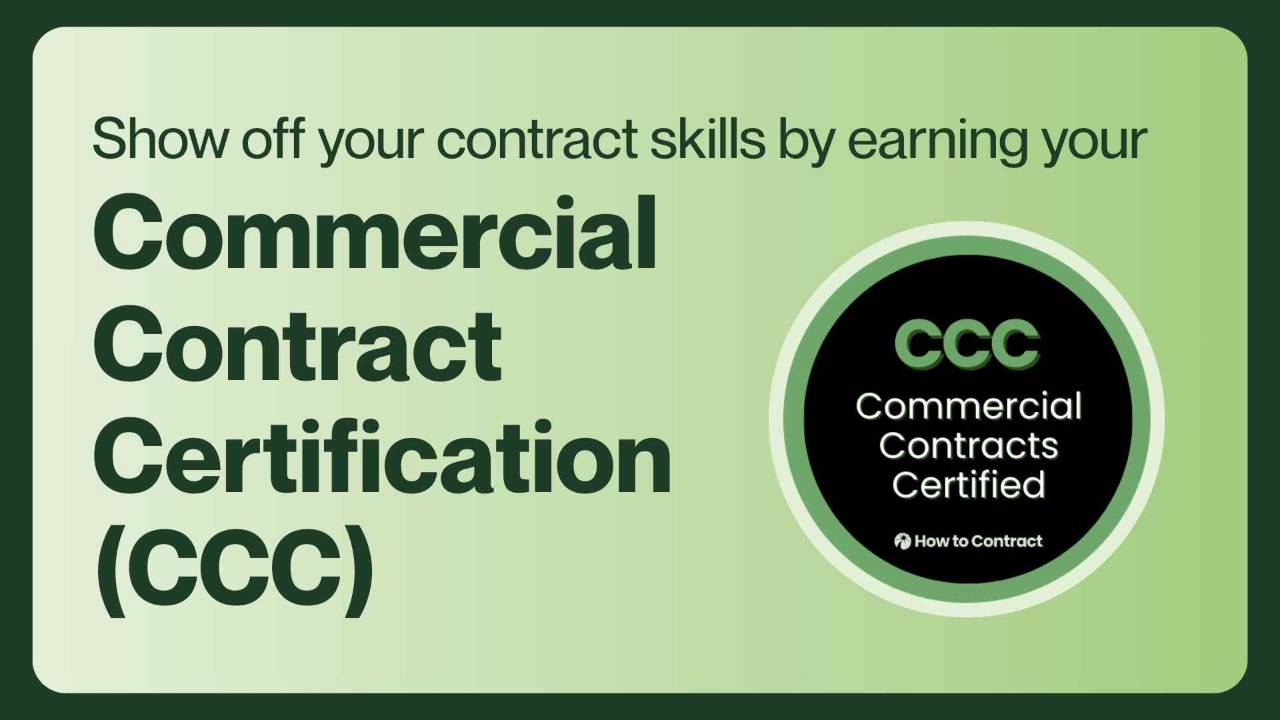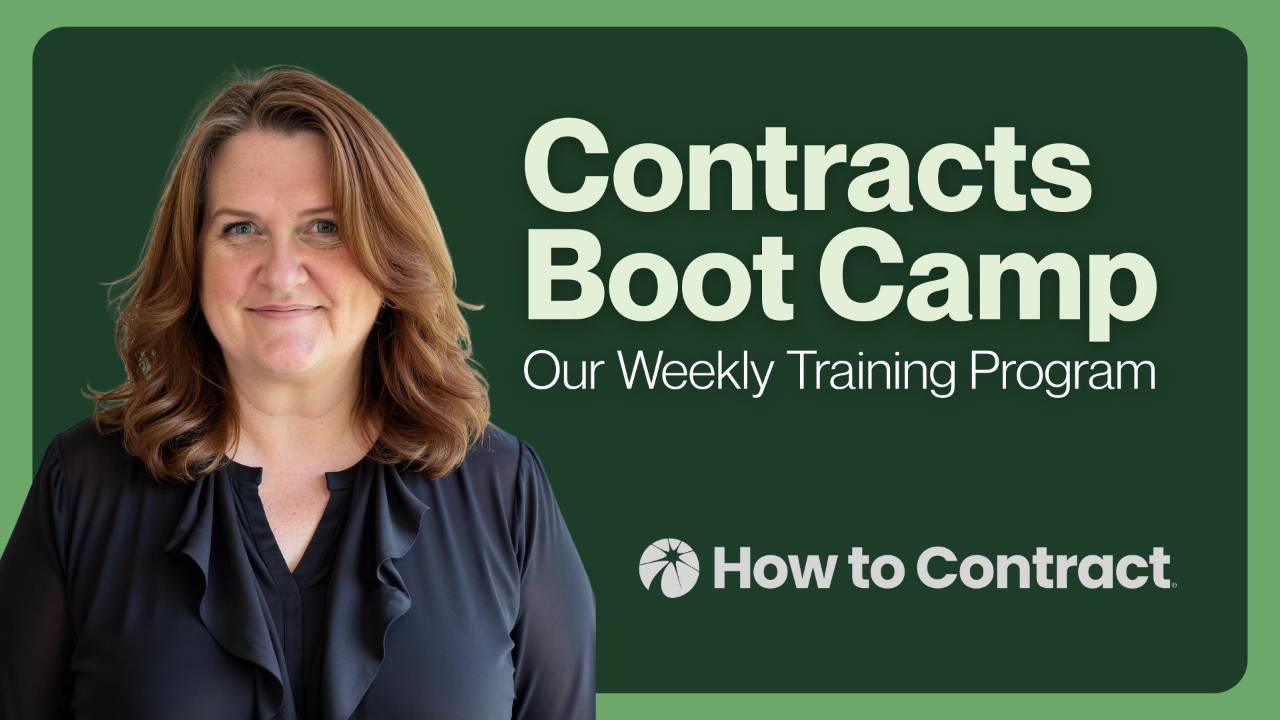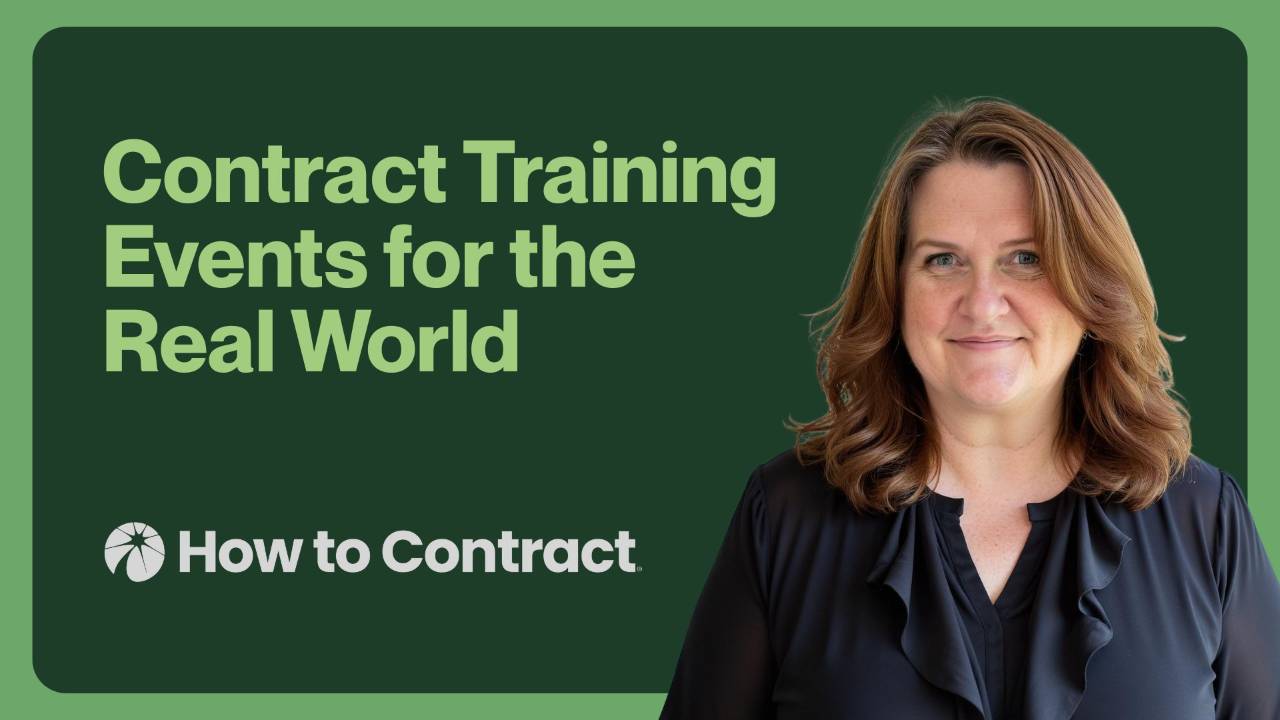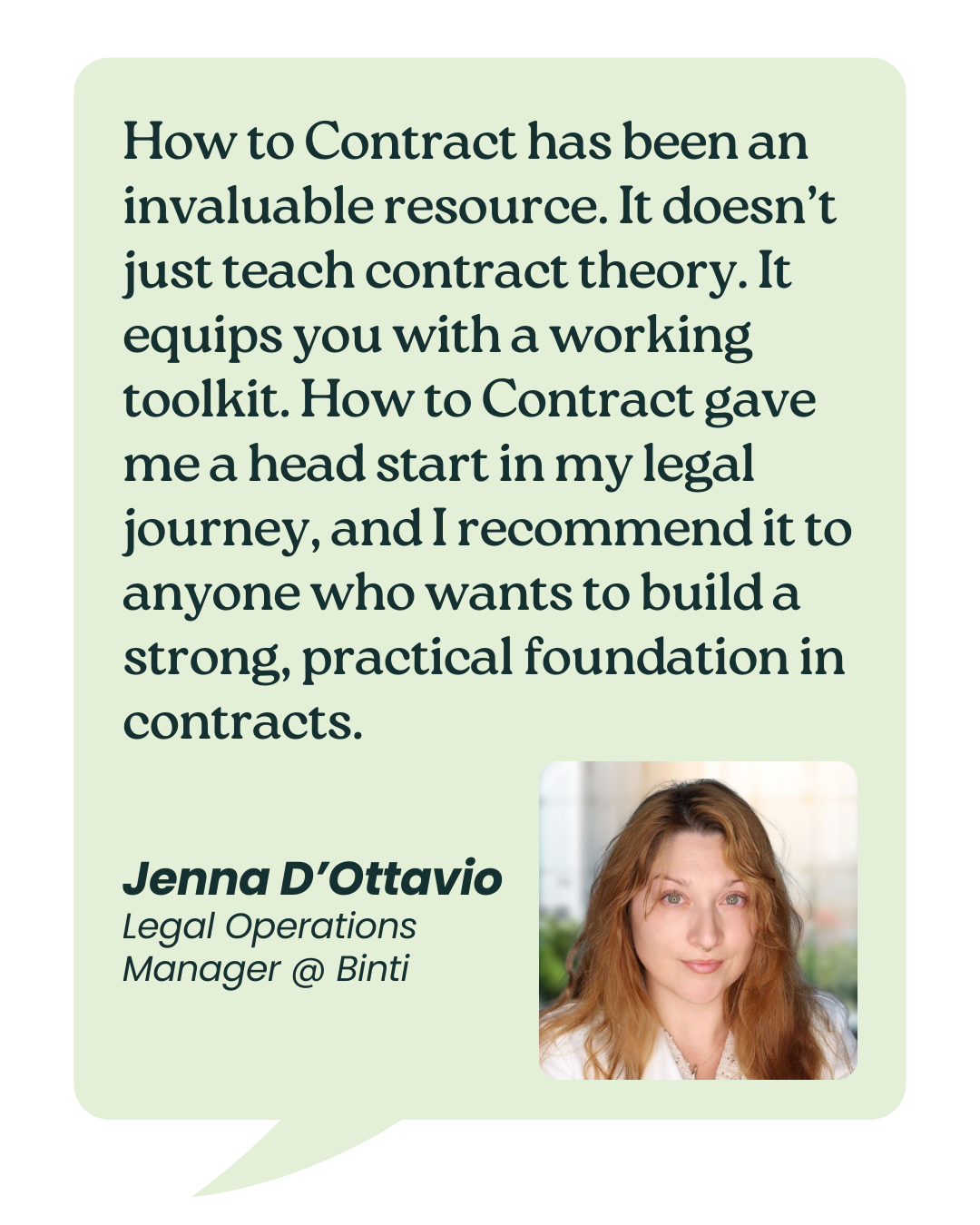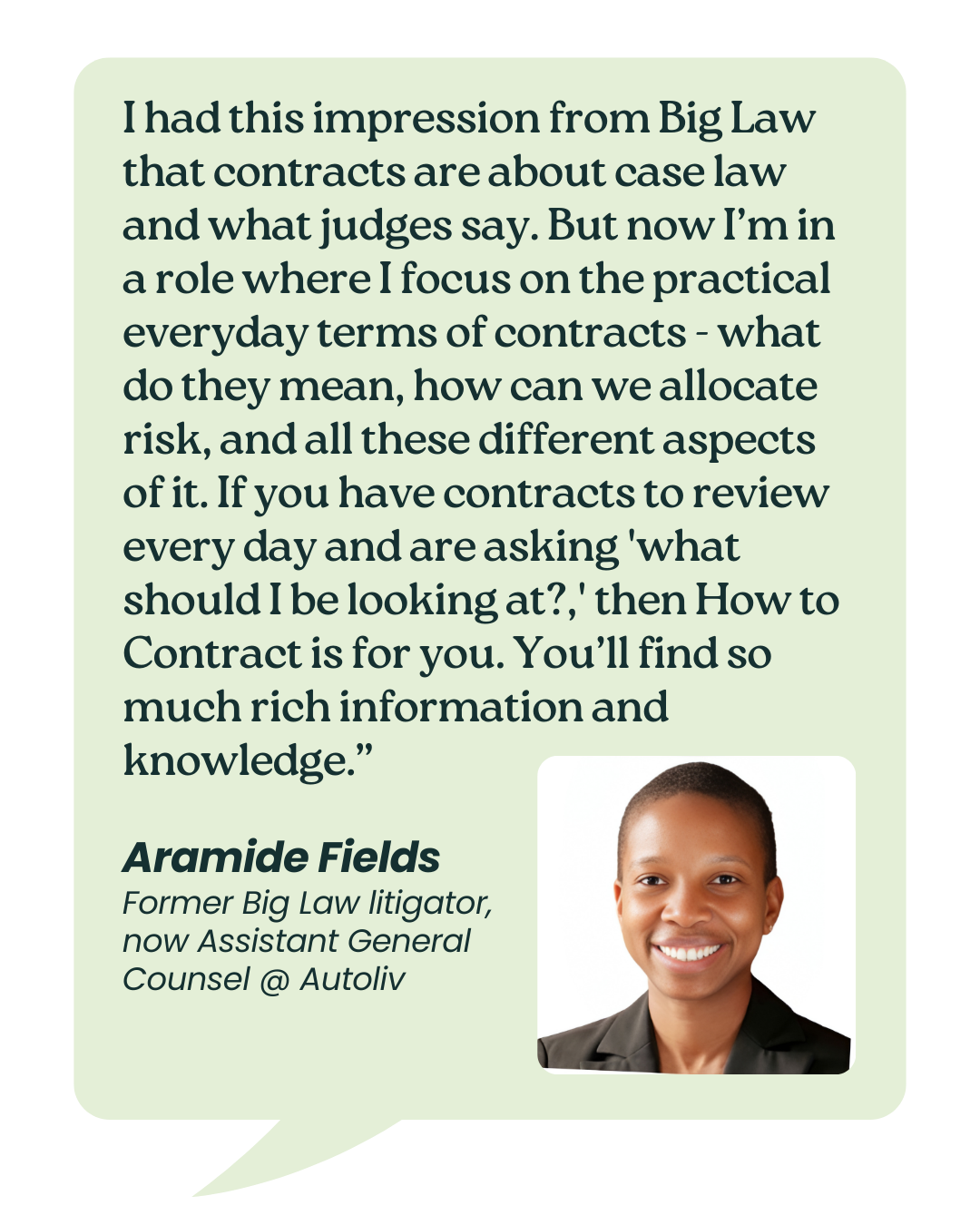
How I Contract: Interview With Mary Hamaker, Deputy General Counsel at Barracuda
“How I Contract” is a series of interviews with lawyers and professionals sharing their tips and stories on contract drafting and negotiation. In this interview, Mary Hamaker, Deputy General Counsel at ServiceMax, gives her advice on dealing with difficult counterparties, overcoming imposter syndrome, as well as managing stress as a lawyer working with contracts.
How Lawyers Learn Contract Drafting
Did you learn contract drafting in law school?
No. I had several jobs that offered formal and on-the-job training for contract drafting and negotiation.
How did you learn to draft contracts?
Different employers held in-house seminars. Gray Cary (now DLA Piper) did a terrific job of training its attorneys. EMC Corporation also brought in outside speakers, and different functions, such as the IP Group, conducted seminars.
Early Lessons and Mentorship in Contract Law
Do you remember any significant events or lessons you learned in the early days of learning how to draft contracts?
I mentored multiple junior attorneys and summer interns at Gray Cary. I particularly recall talking with summer interns and describing a commercial agreement as a 3-dimensional jigsaw puzzle. If you push on 1 term, another term might “jut out” and need to be tamped back into place to align with the overall edits. This resonated with the summer interns and helped them understand the interrelationship among the different parts of the agreement.
Who was the mentor that taught you the most about real-world contract drafting and negotiating?
One of my supervisors at EMC Corporation was instrumental in helping me develop to the next level, including how to manage internal politics, negotiate complex IP-related issues, and address potential litigation.
Effective Strategies for Contract Negotiation
How did you view negotiating when you were starting out?
I look for a win-win because the goal of commercial agreements is to set up a business relationship. I try to remember that doing the contract is not about the lawyers or who is right. It’s about facilitating a productive, on-going business relationship. I love to win, so this can be hard for me. I have “invisible get over yourself pills” and sometimes have to “take” one. They can be bitter, but as long as my business people fully understand the risks, they are the ones to make the business decisions, and I have to get out of the way.
Do you ever feel imposter syndrome when you are working on contracts?
No. I am really confident about what I know, and I am strong enough to admit when I don’t know something and will go look it up. I have gained a lot of credibility with the other side for that behavior, particularly when their own lawyer can’t admit when they don’t know something and bluster.
What do you enjoy the most about working with contracts?
Did I mention that I love to win?! I am a zealous advocate for my client, so it’s such a thrill to complete an agreement that allows my team to advance its business goals. I also love working on templates because it requires me to learn the entire business and work with people across the company.
What frustrates you the most about working with contracts?
I am most frustrated by opposing counsel who is not knowledgeable and is not willing to learn. They dig in their heels on their language because they don’t know enough to be able to craft a compromise or to understand the compromise that I offer.
Advice for Aspiring Contract Professionals
What is the biggest misconception other lawyers and professionals have about working with contracts?
Most business people completely underestimate the amount of time it takes to negotiate an agreement. They think that if they’ve allowed 1-2 weeks, they’ve provided enough time. It’s draining to have to go through the process with them and see their disappointment when they realize that they didn’t allow enough time.
What made you decide to transition to contract drafting and negotiating?
I began my practice in litigation, but after 4 years of that, I wanted to move to a practice that I found to be more positive and creative. Through a series of moves, I went from learning intellectual property to doing commercial agreements.
What advice do you have for someone interested in working on contracts as a career?
#1 - learn the business. A commercial agreement is nothing more than a statement of how the parties are going to work together. If the agreement sets that up in a way that the business cannot implement, then that agreement is going to be a problem from the outset.
Balancing Work Demands and Managing Stres
What advice do you have for dealing with difficult counterparties?
Breathe. Pause. Know your client’s “must haves” and keep driving to them. If you can also understand the other side’s “must haves” and can give them something, that will help you. I find that the more calm I remain, the more the difficult attorney on the other side gets agitated and looks bad in front of their own client. That’s when my business people start to talk in back channels (with my coaching) to their counterparts to drive the issues from the business side.
What advice do you have for managing the stress and work demands that come with working on contracts?
Do yoga. Practice slow, deep breathing. Take walks or do other exercises. Get enough sleep and eat healthy food. Spend time with family and friends. Don’t work 24/7 - have limits and enforce them. You deserve it. You are enough.
How to Contract's membership is designed to help you build real-world expertise with commercial contracts. Get access to our comprehensive system of live and on-demand courses, weekly lessons, detailed playbooks, and more. Join today!

